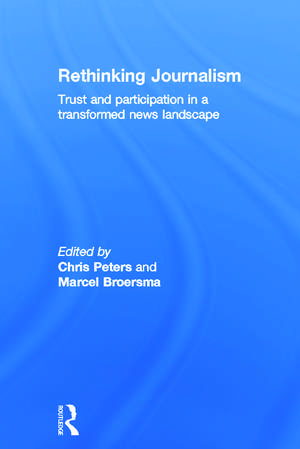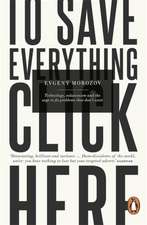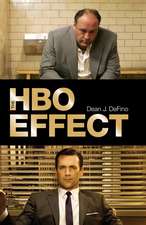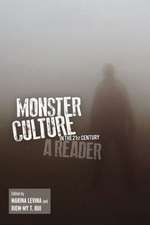Rethinking Journalism: Trust and Participation in a Transformed News Landscape
Editat de Chris Peters, M. J. Broersmaen Limba Engleză Hardback – 25 sep 2012
Rather than just focus on the symptoms of the ‘crisis of journalism’, this collection tries to understand the structural transformation journalism is undergoing. It explores how the news media attempts to combat decreasing levels of trust, how emerging forms of news affect the established journalistic field, and how participatory culture creates new dialogues between journalists and audiences. Crucially, it does not treat these developments as distinct transformations. Instead, it considers how their interrelation accounts for both the tribulations of the news media and the need for contemporary journalism to redefine itself.
| Toate formatele și edițiile | Preț | Express |
|---|---|---|
| Paperback (1) | 352.92 lei 6-8 săpt. | |
| Taylor & Francis – 25 sep 2012 | 352.92 lei 6-8 săpt. | |
| Hardback (1) | 1003.61 lei 6-8 săpt. | |
| Taylor & Francis – 25 sep 2012 | 1003.61 lei 6-8 săpt. |
Preț: 1003.61 lei
Preț vechi: 1223.92 lei
-18% Nou
Puncte Express: 1505
Preț estimativ în valută:
192.03€ • 200.52$ • 158.58£
192.03€ • 200.52$ • 158.58£
Carte tipărită la comandă
Livrare economică 16-30 aprilie
Preluare comenzi: 021 569.72.76
Specificații
ISBN-13: 9780415697019
ISBN-10: 0415697018
Pagini: 264
Ilustrații: 6 tables
Dimensiuni: 156 x 234 x 16 mm
Greutate: 0.55 kg
Ediția:1
Editura: Taylor & Francis
Colecția Routledge
Locul publicării:Oxford, United Kingdom
ISBN-10: 0415697018
Pagini: 264
Ilustrații: 6 tables
Dimensiuni: 156 x 234 x 16 mm
Greutate: 0.55 kg
Ediția:1
Editura: Taylor & Francis
Colecția Routledge
Locul publicării:Oxford, United Kingdom
Public țintă
Postgraduate and UndergraduateCuprins
Introduction Rethinking Journalism: The Structural Transformation of a Public Good Marcel Broersma and Chris Peters Part 1: Public Trust in Journalism 1. Trust, Cynicism, and Responsiveness: The Uneasy Situation of Journalism in Democracy Kees Brants 2. A Refractured Paradigm: Journalism, Hoaxes and the Challenge of Trust Marcel Broersma 3. Getting the Facts Straight in a Digital Era: Journalistic Accuracy and Trustworthiness Colin Porlezza and Stephan Russ-Mohl 4. The Postmodern Challenge to Journalism: Strategies for Constructing a Trustworthy Identity Jo Bogaerts and Nico Carpentier Part 2: Participatory Forms of Journalism 5. Trust, Truth and Objectivity: Sustaining Quality Journalism in the Era of the Content-Generating User Brian McNair 6. News Making as an Interactive Practice: Global News Exchange and Network Journalism Ansgard Heinrich 7. Between Networks and ‘Hierarchies of Credibility’: Navigating Journalistic Practice in a Sea of User-Generated Content Ingrid Volkmer and Amira Firdaus 8. Talking Back, But is Anyone Listening?: Journalism and Comment Fields Todd Graham Part 3: Emerging Journalisms 9. Separate, Supplementary or Seamless?: Alternative News and Professional Journalism Chris Atton 10. Journalism as Interpretive Performance: The Case of WikiLeaks Stuart Allan 11. Transforming Journalistic Practice: A Profession Caught Between Change and Tradition Tamara Witschge 12. ‘Even Better Than Being Informed’: Satirical News and Media Literacy Chris Peters Part 4: Rethinking Journalism Rethought 13. Would Journalism Please Hold Still! Michael Schudson 14. Journalism, Participative Media and Trust in a Comparative Context Thomas Hanitzsch 15. ‘Trust Me, I’m an Innovative Journalist,’ And Other Fictions Kevin G. Barnhurst
Recenzii
‘Rethinking Journalism is a significant collection of essays, by distinguished scholars of journalism studies, which focuses on the structural changes which are transforming every aspect of journalism. The "rethink" on offer here is fundamental, thought-provoking, but also eloquent. Reviewers risk running short of superlatives.’
Bob Franklin, Cardiff University, UK
‘Avoiding hyperbolic prophecies of either salvation or doom for the news media, the well-informed insights in this outstanding collection repeatedly bring us back to the fundamental importance of trust in sustaining the social relevance of journalism. As structures are transformed and social roles transposed, the grounded context provided by these top journalism studies scholars is much needed and most welcome.’
Jane B. Singer, University of Iowa, USA
'..the anthology....is indeed packed with valuable arguments and intricate insights from a very qualified range of American and European scholars. Rethinking or not, this is a highly valuable collection if one wishes a broad overview of the current debates within academia on the state of journalism.' Henrik Bodker, Digital Journalism
"Rethinking Journalism delivers on its title – it offers a sound argument for the need to redefine journalism at its core: What makes something ‘journalism’ in today’s changing media landscape? If we unchain journalism from its paradigms, what should the emerging structure look like? Each chapter presents a different vision and although consensus may not be possible, the book offers a starting point from which we can begin to build an invigorated news sphere with trust and truth at its core." - Amber Hinsley, Journalism
Bob Franklin, Cardiff University, UK
‘Avoiding hyperbolic prophecies of either salvation or doom for the news media, the well-informed insights in this outstanding collection repeatedly bring us back to the fundamental importance of trust in sustaining the social relevance of journalism. As structures are transformed and social roles transposed, the grounded context provided by these top journalism studies scholars is much needed and most welcome.’
Jane B. Singer, University of Iowa, USA
'..the anthology....is indeed packed with valuable arguments and intricate insights from a very qualified range of American and European scholars. Rethinking or not, this is a highly valuable collection if one wishes a broad overview of the current debates within academia on the state of journalism.' Henrik Bodker, Digital Journalism
"Rethinking Journalism delivers on its title – it offers a sound argument for the need to redefine journalism at its core: What makes something ‘journalism’ in today’s changing media landscape? If we unchain journalism from its paradigms, what should the emerging structure look like? Each chapter presents a different vision and although consensus may not be possible, the book offers a starting point from which we can begin to build an invigorated news sphere with trust and truth at its core." - Amber Hinsley, Journalism
Descriere
There is no doubt, journalism faces challenging times. Since the turn of the millennium, the financial health of the news industry is failing, mainstream audiences are on the decline, and professional authority, credibility and autonomy are eroding. The outlook is bleak and it’s understandable that many are pessimistic. But this book argues that we have to rethink journalism fundamentally.
Rather than just focus on the symptoms of the ‘crisis of journalism’, this collection tries to understand the structural transformation journalism is undergoing. It explores how the news media attempts to combat decreasing levels of trust, how emerging forms of news affect the established journalistic field, and how participatory culture creates new dialogues between journalists and audiences. Crucially, it does not treat these developments as distinct transformations. Instead, it considers how their interrelation accounts for both the tribulations of the news media and the need for contemporary journalism to redefine itself.
Rather than just focus on the symptoms of the ‘crisis of journalism’, this collection tries to understand the structural transformation journalism is undergoing. It explores how the news media attempts to combat decreasing levels of trust, how emerging forms of news affect the established journalistic field, and how participatory culture creates new dialogues between journalists and audiences. Crucially, it does not treat these developments as distinct transformations. Instead, it considers how their interrelation accounts for both the tribulations of the news media and the need for contemporary journalism to redefine itself.














